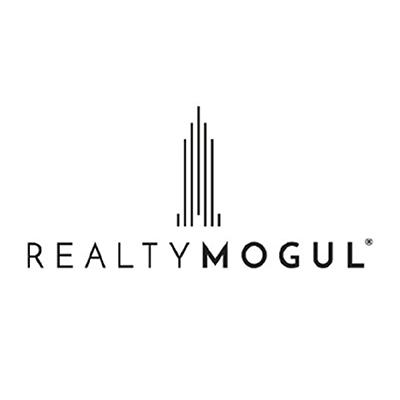Invest in individual commercial real estate properties or REITs
Invest in startups in exchange for equity
Investments
$25,000
The minimum investment on RealtyMogul typically ranges from $25,000 to $35,000, depending on the specific investment offering.
Investments
$100
The standard minimum investment on Wefunder for most Community Rounds is $100. However, the exact minimum can vary based on the specific offering and the investor's status as an accredited investor.
Moderate Risk
3/5
Investing through RealtyMogul entails risks like market volatility, economic shifts, and property-specific issues. Investments are illiquid and there's potential for loss of capital.
High Risk
4/5
Investing in startups on Wefunder is highly risky, and there's a real possibility of losing your entire investment.
Minimum Liquidity
1/5
Investments through RealtyMogul are illiquid, as they are private real estate transactions not traded on public exchanges, and therefore cannot be easily sold or traded. Investors should have a long-term commitment and not expect to resell quickly.
Minimum Liquidity
1/5
Wefunder's investments are not highly liquid, as there is no public market for selling your stake. After one year, you can sell to any interested buyer.
Receive new reviews from Fintorial
High Return
15.0 %
Investors on RealtyMogul can expect an overall realized IRR of 20.8% and an overall target IRR of 15.0%. Cash-on-cash returns, IRR, and equity multiples are key metrics provided for each deal.
Not Predictable Return
N/P
On Wefunder, investors can earn returns through different investment mechanisms: Debt, Convertibles Stock (No Dividends), Stock, Dividends. Investment returns on Wefunder vary by investment type, with dividends more typical in later-stage, non-tech businesses.
Long-term Investment
3-10 years
Investments on RealtyMogul generally have a hold period ranging from 3 to 10 years, depending on the individual property's business plan and associated financing.
Long-term Investment
7 years
Investments on Wefunder are long-term, with an average return period of around seven years, particularly for convertible notes or SAFEs.
Who can invest
United States
RealtyMogul allows both accredited and non-accredited investors to use its platform. However, only accredited investors can participate in private placement offerings, while both categories of investors may invest in RealtyMogul's managed REITs, subject to certain legal limitations.
Who can invest
International
Individuals 18 and older can invest on Wefunder, regardless of whether they are accredited or non-accredited investors. Additionally, Wefunder allows investments through entities.
Moderate Volatility
3/5
Commercial real estate assets on RealtyMogul can be volatile, with values affected by economic shifts, interest rates, and market trends. This can lead to fluctuations in investment value and potential financial losses.
Moderate Volatility
3/5
The assets on Wefunder, primarily startups and small businesses, are highly volatile due to the uncertain success of these ventures and fluctuating market conditions.
Regulation and audits
SEC Regulated
RealtyMogul is regulated by the SEC and must adhere to strict disclosure and filing requirements. The platform's offerings are subject to regular audits to ensure compliance with financial reporting and regulatory standards.
Regulation and audits
SEC Regulated
Wefunder is regulated by the SEC and FINRA under Regulation Crowdfunding (Reg CF), requiring it to adhere to strict rules about investment limits, company fundraising, and disclosures.
Insurance
Yes
RealtyMogul's properties are insured against physical damage and loss, but insurance might not cover all risks, such as market volatility or economic downturns. Insurance is a risk mitigation tool, not a guarantee against all potential losses.
Payouts
Dividends
Investors may receive quarterly distributions, which are not guaranteed in timing or amount and depend on the performance of the investment and terms set by the managing real estate company.
Payouts
No Recurring Payouts
Wefunder investments typically do not offer dividends, as they are often in early-stage startups focusing on growth.
Withdrawals
Investors on RealtyMogul can expect to receive their money back either through property sales or distributions during the investment's hold period, as outlined in the offering documents. The investments are illiquid, so exact timing of returns is not guaranteed.
Withdrawals
On Wefunder, investors primarily see returns from liquidity events like acquisitions or IPOs, where investments may convert to cash or shares. After the first year, shares can be sold to any interested buyer, with Wefunder facilitating the transfer process. For debt investments or revenue shares, returns follow the agreed terms, like fixed repayments or revenue-based payouts.
Extra Fees
Yes
Investors indirectly pay fees for each investment, which vary by the offering and cover administrative, legal, and management costs. Fee details are disclosed for each opportunity on the platform.
Extra Fees
Yes
Wefunder charges a one-time transaction fee of 2% for bank payments and 5.5% for credit card payments. For WeFunds, an administrative fee covers lifetime costs like filings and accounting, with no additional contributions required from investors.
Taxes
Tax Form
RealtyMogul issues Schedule K-1 forms for individual deals and Form 1099s for REIT investments, made accessible via the investor's dashboard. Dividends from REITs historically have not been qualified for preferential tax rates.
Taxes
Tax Form
Wefunder supports tax reporting for investors by providing Schedule K-1 forms for those invested through LLCs or SPVs, detailing taxable gains or losses. For investments receiving payments, such as revenue shares, Form 1099 may be issued to report income.

